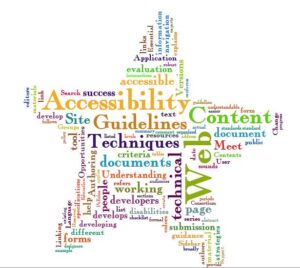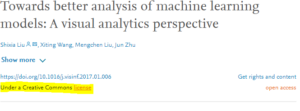To maximise the number of OU authored publications recorded in our Open Research Online (ORO) repository, we have set up a weekly alert service from Web of Science, Scopus, and Science Direct. This provides us with a listing of new publication records from their sites that we can check to see if the item is already in ORO or not. I check the weekly Web of Science alerts. As part of our #VisualisingResearchSupport series, here is a brief overview of how I manage these alerts and the findings so far.
Firstly, I check if the publication record is genuinely affiliated with The Open University. Alerts are not perfect. In fact, some records will include authors who are affiliated with other open universities around the world, for example, the Open University of the Netherlands! This is the first and possibly the most important check of all.
Once affiliation is confirmed, a search in ORO will determine if the publication is already in ORO or not. If it is, brilliant! At that point, the ORO record will be checked, making sure all metadata is accurate and full text is made available wherever possible. If the publication is missing, further checks are needed to make sure it can be added. Some types of publications, such as obituaries, are not usually included in ORO. If the item is a journal article, book chapter, edited book, conference/workshop item, or a book review, we can go ahead and add it to the repository.
What the data shows
Since 3rd June 2021, 11 alerts have been processed, covering a total of 291 records. Out of this, 40 new publication records were added to ORO; 15 book reviews, 5 book chapters, 19 journal articles, and 1 conference proceeding. 28 items didn’t make it into ORO. 10 were not applicable forms of publication i.e., obituaries or similar, and 18 publications featured authors that were not affiliated with the OU.
The good news is that the majority of publications, 223 in total, were already in ORO! 65 records were accurate and needed no further intervention, and 158 needed editing in some way.
The alerts exercise seems to show that a great deal of publications do make it to ORO, whether they are added directly by the author, by the ORO team, or via services like the Jisc Publications Router. It also shows there is room for improvement to ensure that record metadata is as accurate as possible. Although it can be time consuming, I think continuing the alerts exercise is worthwhile. It gives the team the opportunity to review what we do and make changes to our ways of working where necessary, and most importantly ensures that our OU author publications lists are up to date!


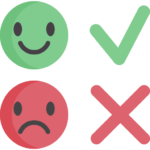
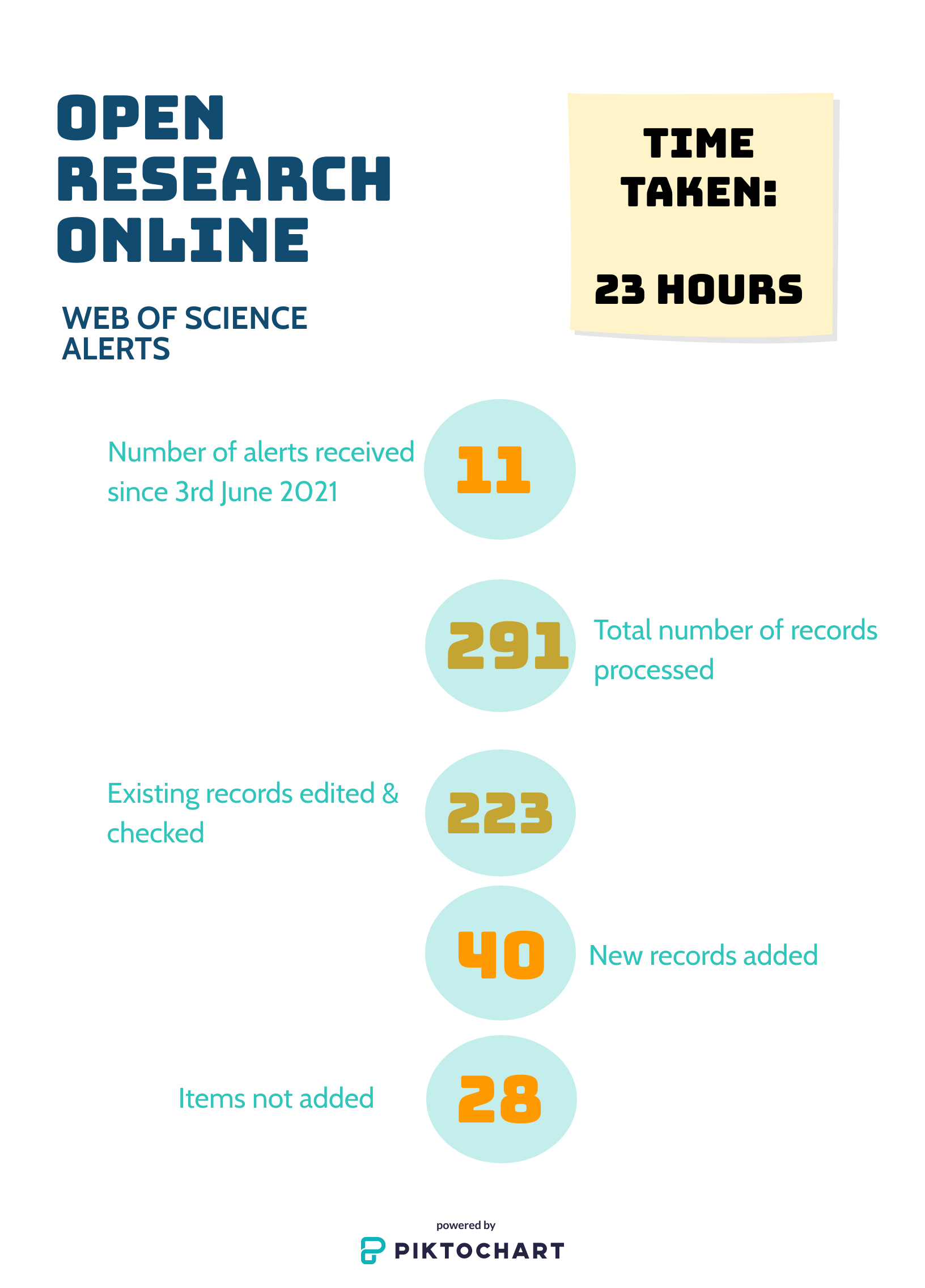

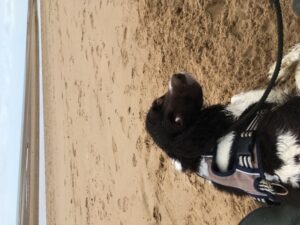

 Image by
Image by 
